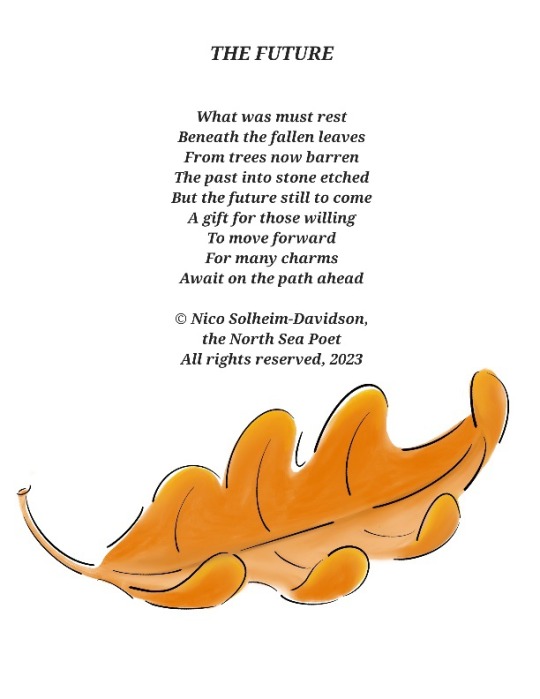#autumnus
Text

By jameslloydcole
🎃 Autumn Cozy ambience playlist
#autumn#fall#cozy#pumpkin#halloweencore#october#cosy#pumpkin head#Herbst#jesien#podzim#syksy#automne#phthinoporon#herfst#najaar#fomhar#autumno#autumnus#otoño#sonbahar#osin´
3K notes
·
View notes
Text
Happy Autumn Equinox! As is tradition, here is my annual Autumn poem

BUT WAIT! THERE'S MORE!
I just released my Autumn themed ebook today as well! You can purchase it right here!
#north sea poet#poetry#my poetry#nico solheim-davidson#my own poetry#autumn#my poem#new p.s.#poetblr#autumn equinox#autumn is the best season#autumn is my favorite season#autumnal#autumnus
18 notes
·
View notes
Text
Haven't played in soooo long so I'm struggling 🥲🥲 but I just really like the intro of this song so I want to learn it properly
17 notes
·
View notes
Text

2 notes
·
View notes
Video
youtube
Reflections // Patrick Somoulay // Autumnus Guitar Playthrough
0 notes
Text

[guy who loves chuunibyo characters voice] anyone going to ship these two characters or is it just me.
5 notes
·
View notes
Text
It’s poll time again!!!






#🍭fashion dreamer#🍰 my fits#🍦style survey#in my opinion some of these are crimes#my personal fave WOULD be Autumnus bc he’s my fave npc but the slippers😭
2 notes
·
View notes
Photo

In Autumnus - Dysphoria Sonata II
Self-released
2022
16 notes
·
View notes
Audio
"October" by In Autumnus - From "Mellifluous" Split with For Dove (2019)
2 notes
·
View notes
Text
To be fully honest, some of the Fash.ion Drea.mer npcs are lookin kinda yume-able….
#lookin at you Autumnus my beloved#and it’s too late he’s already there#he’ll prolly be more of a side thing bc he doesn’t have. substance. but I think he’s neat#LC screams#AM I GONNA MAKE A FULL-ON FD S/I?????
1 note
·
View note
Text

By Jacques Dillies
#autumn#fall#october#pumpkins#pumpkin patch#fall blog#pumpkin#cozy#halloween#Herbst#jesien#podzim#syksy#automne#phthinoporon#herfst#najaar#fomhar#autumno#autumnus#otoño#sonbahar#osin´
2K notes
·
View notes
Text
winter (n.)
Old English winter (plural wintru), "the fourth and coldest season of the year, winter," from Proto-Germanic *wintruz "winter" (source also of Old Frisian, Dutch winter, Old Saxon, Old High German wintar, German winter, Danish and Swedish vinter, Gothic wintrus, Old Norse vetr "winter"), probably literally "the wet season," from PIE *wend-, nasalized form of root *wed- (1) "water; wet"). On another old guess, cognate with Gaulish vindo-, Old Irish find "white." The usual PIE word is *gheim-.
Proto-Indo-European root meaning "winter."
It forms all or part of: chimera; chiono-; hiemal; hibernacle; hibernal; hibernate; hibernation; Himalaya.
fabulous monster of Greek mythology, slain by Bellerophon, late 14c., from Old French chimere or directly from Medieval Latin chimera, from Latin Chimaera, from Greek khimaira, name of a mythical fire-breathing creature (slain by Bellerophon) with a lion's head, a goat's body, and a dragon's tail, a word that also meant "year-old she-goat" (masc. khimaros), from kheima "winter season," from PIE root *gheim- "winter."
As an adjective in Old English. The Anglo-Saxons counted years in "winters," as in Old English ænetre "one-year-old;" and wintercearig, which might mean either "winter-sad" or "sad with years." Old Norse Vetrardag, first day of winter, was the Saturday that fell between Oct. 10 and 16.
spring (n.)
"season following winter, first of the four seasons of the year; the season in which plants begin to rise," by 1540s, a shortening of spring of the year (1520s), which is from a special sense of an otherwise now-archaic spring (n.) "act or time of springing or appearing; the first appearance; the beginning, birth, rise, or origin" of anything (see spring v., and compare spring (n.2), spring (n.3)).
The earliest form seems to have been springing time (early 14c.). The notion is of the "spring of the year," when plants begin to rise and trees to bud (as in spring of the leaf, 1520s).
The Middle English noun also was used of sunrise, the waxing of the moon, rising tides, sprouting of the beard or pubic hair, etc.; compare 14c. spring of dai "sunrise," spring of mone "moonrise." Late Old English spring meant "carbuncle, pustule."
As the word for the vernal season it replaced Old English lencten (see Lent). Other Germanic languages take words for "fore" or "early" as their roots for the season name (Danish voraar, Dutch voorjaar, literally "fore-year;" German Frühling, from Middle High German vrueje "early").
In 15c. English, the season also was prime-temps, after Old French prin tans, tamps prim (Modern French printemps, which replaced primevère 16c. as the common word for spring), from Latin tempus primum, literally "first time, first season."
summer (n.)
"hot season of the year," Old English sumor "summer," from Proto-Germanic *sumra- (source also of Old Saxon, Old Norse, Old High German sumar, Old Frisian sumur, Middle Dutch somer, Dutch zomer, German Sommer), from PIE root *sm- "summer" (source also of Sanskrit sama "season, half-year," Avestan hama "in summer," Armenian amarn "summer," Old Irish sam, Old Welsh ham, Welsh haf "summer").
autumn (n.)
season after summer and before winter, late 14c., autumpne (modern form from 16c.), from Old French autumpne, automne (13c.), from Latin autumnus (also auctumnus, perhaps influenced by auctus "increase"), which is of unknown origin.
Perhaps it is from Etruscan, but Tucker suggests a meaning "drying-up season" and a root in *auq- (which would suggest the form in -c- was the original) and compares archaic English sere-month "August." De Vaan writes, "Although 'summer', 'winter' and 'spring' are inherited IE words in Latin, a foreign origin of autumnus is conceivable, since we cannot reconstruct a PIE word for 'autumn'".
Harvest (n.) was the English name for the season until autumn began to displace it 16c. Astronomically, from the descending equinox to the winter solstice; in Britain, the season is popularly August through October; in U.S., September through November. Compare Italian autunno, Spanish otoño, Portuguese outono, all from the Latin word.
As de Vaan notes, autumn's names across the Indo-European languages leave no evidence that there ever was a common word for it. Many "autumn" words mean "end, end of summer," or "harvest." Compare Greek phthinoporon "waning of summer;" Lithuanian ruduo "autumn," from rudas "reddish," in reference to leaves; Old Irish fogamar, literally "under-winter."
summer and winter both with PIE roots, but autumn and spring both without!
154 notes
·
View notes
Text
Ghost: When I donate my body to science, they will be like wow. I do not want this
----------
Ghost: What’s you darkest desire?
Soap: I wanna stare at someone from across the street, then disappear when a bus passes
----------
Gaz: We call it autumn, from the french word "autopne" and later, the Latin "autumnus"
Alex: We call it fall because leaf fall down!
----------
Ghost: Tip, spice up your panic attacks with a harmonica
Price: Ghost no
Ghost: Ghost yes
----------
Price: Describe 2020
Gaz: Like looking both ways before crossing the street and then getting hit by a submarine
----------
Ghost, waking up from another coma: Hey guys, what time is it?
Price: It's about 1400, you hungry?
Ghost: Oh cool, I could go for some food
Soap, sobbing uncontrollably: Can YOU PLEASE stop acting like NOTHING HAPPENED!
----------
Gaz: Hey, do you have a bag I could use?
Ghost: The only bags I have are the ones under my eyes, and they're specifically designed to carry the burden of my existence
Gaz: Literally, all you had to say was no
----------
Farah: I have very high standards. I only fall in love with graceful, eleg-
Alex: *Stumbles into the room, knocking over a vase, sending multiple bullets to the ground, and lands on his face*
Farah:
Farah: I want that one
----------
Soap: I can probably sing all the lyrics to any Disney song you can name
Ghost: The fuck is Disney
Soap:
Soap: Buckle the fuck up and prepare for a long ass marathon while we cuddle, you neglected child
----------
#cod#cod mw2#mw2#kyle gaz garrick#simon ghost riley#simon riley#cod incorrect quotes#kyle garrick#mw2 incorrect quotes#john mactavish#john soap mactavish#john price#farah karim#alex keller
74 notes
·
View notes
Video
youtube
Reflections // Patrick Somoulay // Autumnus Guitar Playthrough
1 note
·
View note
Text
Le calendrier
Les jours
Lundi, from the old French Lunsdi/the Latin Dies lunae, the day of the moon
Mardi, from the Latin Martis dies, the day of Mars, god of war
Mercredi, from the Latin Mercurii dies, the day of Mercury, god of merchants
Jeudi, from the Latin Jovis dies, the day of Jupiter, the king of gods
Vendredi, from the Latin Veneris dies, the day of Venus, goddess of beauty and love
Samedi, from the Latin Sambati dies, the day of the Sabbath
Dimanche, from the old French dïenenche/the Latin Dies Dominicus, the day of the Lord
Les mois
Janvier, from Janus, the Roman god of beginnings and endings
Février, from the Latin word februarius - purification
Mars (\maʁs\, not /ˈmaʁz/), from Mars, the Roman god of war
Avril, from the Latin word aprilis - opening (of buds)
Mai, from Maius/Maia, the Roman goddess of fertility and growth
Juin \ʒɥɛ̃\, from Junius, the name of the Roman goddess Juno
Juillet (\ʒɥi.jɛ\), from Julius, the name of the Roman general Julius Caesar
Août (\ut\ or \a.ut\), from Augustus, the name of the first Roman emperor
Septembre, from the Latin word september - seventh
Octobre, from the Latin word october - eighth
Novembre, from the Latin word november - ninth
Décembre, from the Latin word december - tenth
Les saisons
L'hiver, from the Old French word hivern + the Latin word hibernus - winter
Le printemps, from the Latin word primus - first
L'été, from the Latin word aestas - summer
L'automne, from the Latin word autumnus - autumn
NB: French days, months and seasons are all masculine and not capitalized.

Movie: Peau d’âne - Jacques Demy, 1970
306 notes
·
View notes
Text
Semper Franciscus
Francis Forever
verba a Mitsucia scripta, converta a me
lyrics by Mitski, translated by me
sine te quid agam nescio
neque ubi manus ponerem
caput reponere conata
haec scribo ad noctis finem
omnes me optimam videre
haud necesse est, sed
stare hic ferre nequeo
si me non vides
lucente sole foris vado
in viam arbustam venio
solares sic hiatus spectans
miserrime te careo
omnes me optimam videre
haud necesse est, sed
stare hic ferre nequeo
si me non vides
autumnus incautis incidit
cum moritur aestas, sed
stare hic ferre nequeo
si me non vides
34 notes
·
View notes